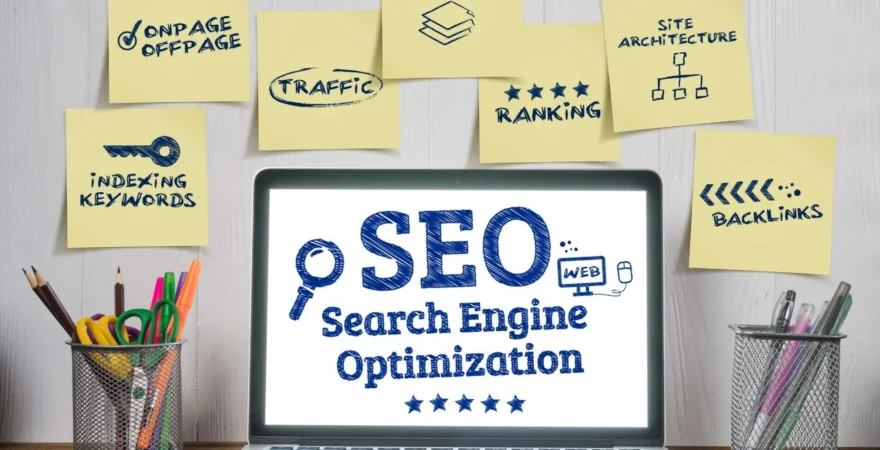
In today’s digital landscape, SEO (Search Engine Optimization) has become a cornerstone of successful marketing strategies. But how exactly does SEO impact marketing, and why should businesses invest in it? This blog dives into the compelling proof that SEO significantly boosts marketing results, driving traffic, brand visibility, and customer engagement. Whether you’re a business owner, marketer, or SEO enthusiast, understanding these connections can help elevate your online presence.
Why SEO is Vital for Marketing Success
SEO enhances a brand’s visibility, ensuring that potential customers can find products, services, or content easily through search engines like Google. By ranking higher in search results, businesses can gain exposure to audiences actively searching for what they offer. Let’s explore the key benefits:
- Increased Organic Traffic
High-ranking pages receive more clicks. SEO drives organic traffic by optimizing a website’s content, keywords, and structure to align with users’ search intent, resulting in more visitors without paid ads. - Better User Experience (UX)
Google’s algorithms prioritize websites that offer excellent user experiences. SEO helps improve site speed, mobile responsiveness, and content quality, directly impacting bounce rates and increasing the time visitors spend on a page. - Higher Conversion Rates
SEO targets users who are already interested in related products or services. These qualified leads convert more frequently, as they are directed to businesses that meet their specific needs. - Enhanced Brand Credibility and Trust
Appearing on the first page of search results not only boosts visibility but also credibility. Users tend to trust Google’s top results, which is why SEO can help position a brand as a reputable authority in its industry.
Proof That SEO Impacts Marketing Success
Case Studies Showing SEO’s Influence
- Case Study 1: Boosting E-Commerce Sales
An e-commerce company optimized its product descriptions, image tags, and blog content, focusing on relevant keywords. Within six months, organic traffic increased by 35%, and conversions jumped by 25%. - Case Study 2: Local Business Growth
A local business leveraged SEO by optimizing Google My Business listings and targeting location-based keywords. The result? A 50% increase in foot traffic and a notable rise in call inquiries. - Case Study 3: Content Marketing Success
By using SEO in blog posts and how-to guides, a software company improved its visibility on search engines. This strategy resulted in more leads, higher engagement, and a 40% increase in inbound traffic.
Statistical Proof of SEO’s Impact
- 75% of users never scroll past the first page of search results. Ranking higher means increased visibility and potential customer engagement.
- SEO leads have a close rate of 14.6%, compared to just 1.7% for outbound methods like direct mail or print advertising.
- 57% of B2B marketers say SEO generates more leads than any other marketing initiative, according to HubSpot.
How to Boost Your Marketing Strategy with SEO
- Keyword Research
Identify and use keywords relevant to your target audience’s search intent. Use tools like Google Keyword Planner, Ahrefs, or SEMrush to find high-value keywords. - On-Page SEO Optimization
Optimize title tags, meta descriptions, headers, and content for each webpage. This helps search engines understand the topic of your pages and improves ranking potential. - Technical SEO
Ensure your site is fast, mobile-friendly, and secure (HTTPS). Google considers these factors when ranking sites, and they contribute to a smoother user experience. - Content Marketing
Create valuable, shareable content that addresses your audience’s needs and interests. Content that naturally incorporates keywords can attract backlinks, boosting SEO even further. - Local SEO
For businesses with physical locations, optimizing for local searches is essential. Google My Business, local keywords, and customer reviews can help attract more nearby customers.
Final Thoughts: The Long-Term Impact of SEO on Marketing
SEO isn’t a one-time task but an ongoing strategy that strengthens over time. Investing in SEO yields sustainable growth, providing a steady stream of qualified traffic that supports long-term marketing goals. As businesses adapt to digital trends, SEO remains a proven method for building visibility, authority, and credibility in the online world.
In short, the proof is clear: SEO impacts marketing success by driving organic traffic, improving user experiences, and positioning brands as credible leaders in their field. When integrated effectively, SEO can amplify your marketing strategy, helping you reach more customers and achieve lasting results.
Leave a Reply


